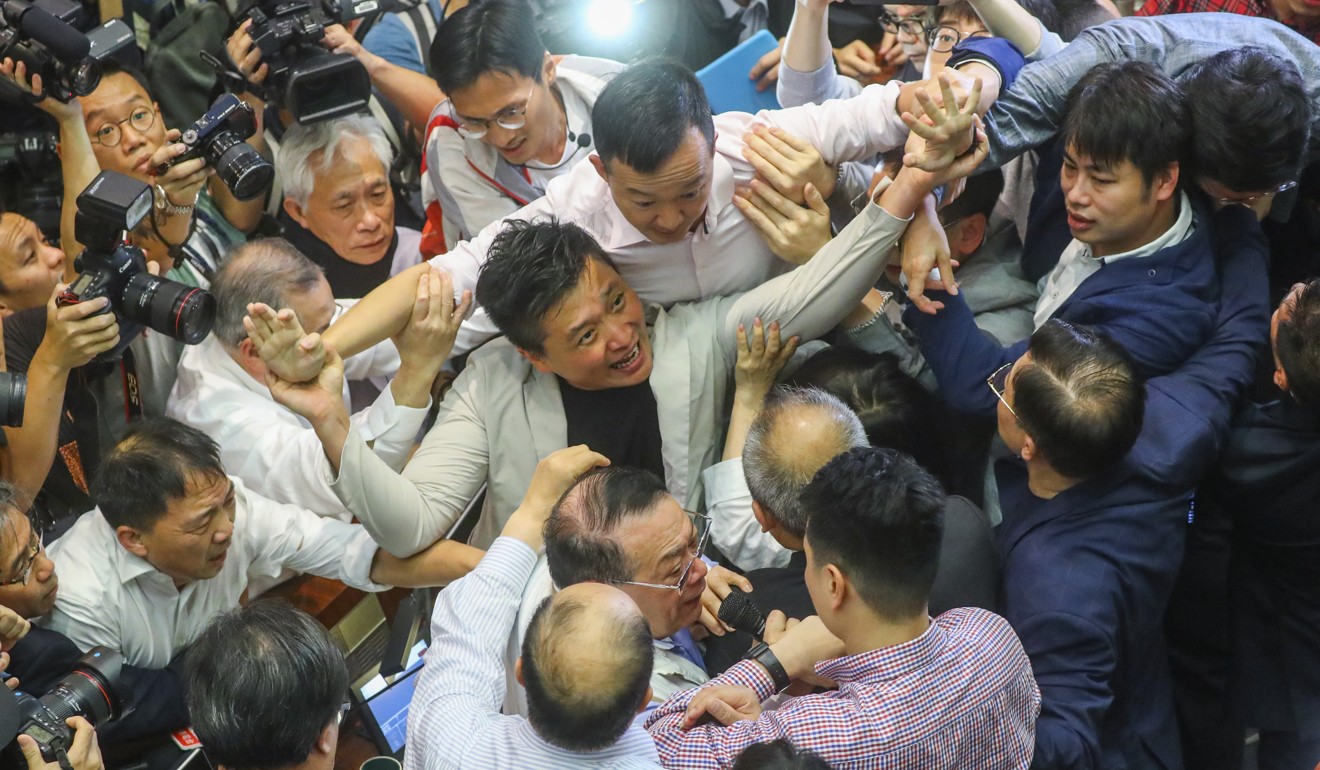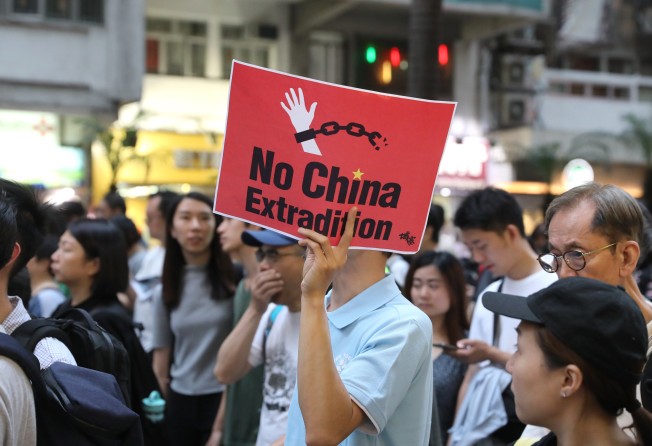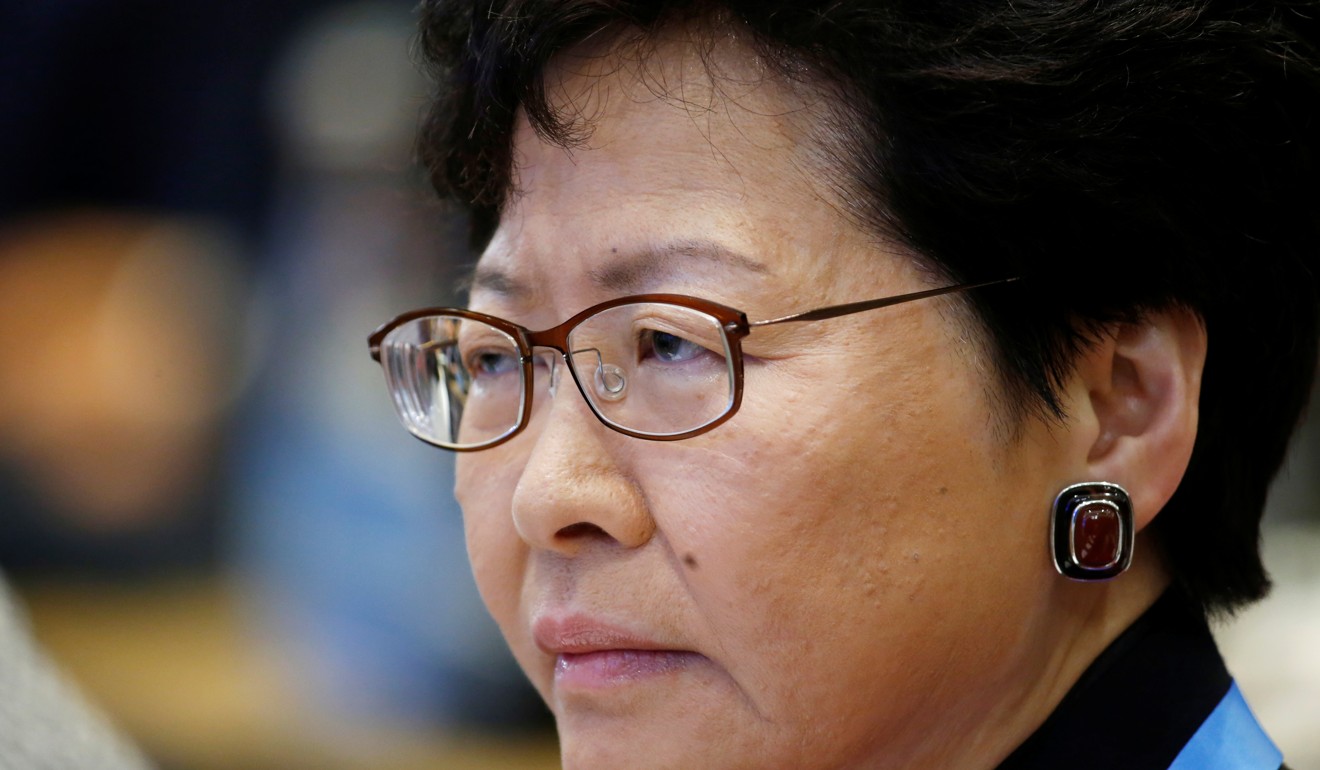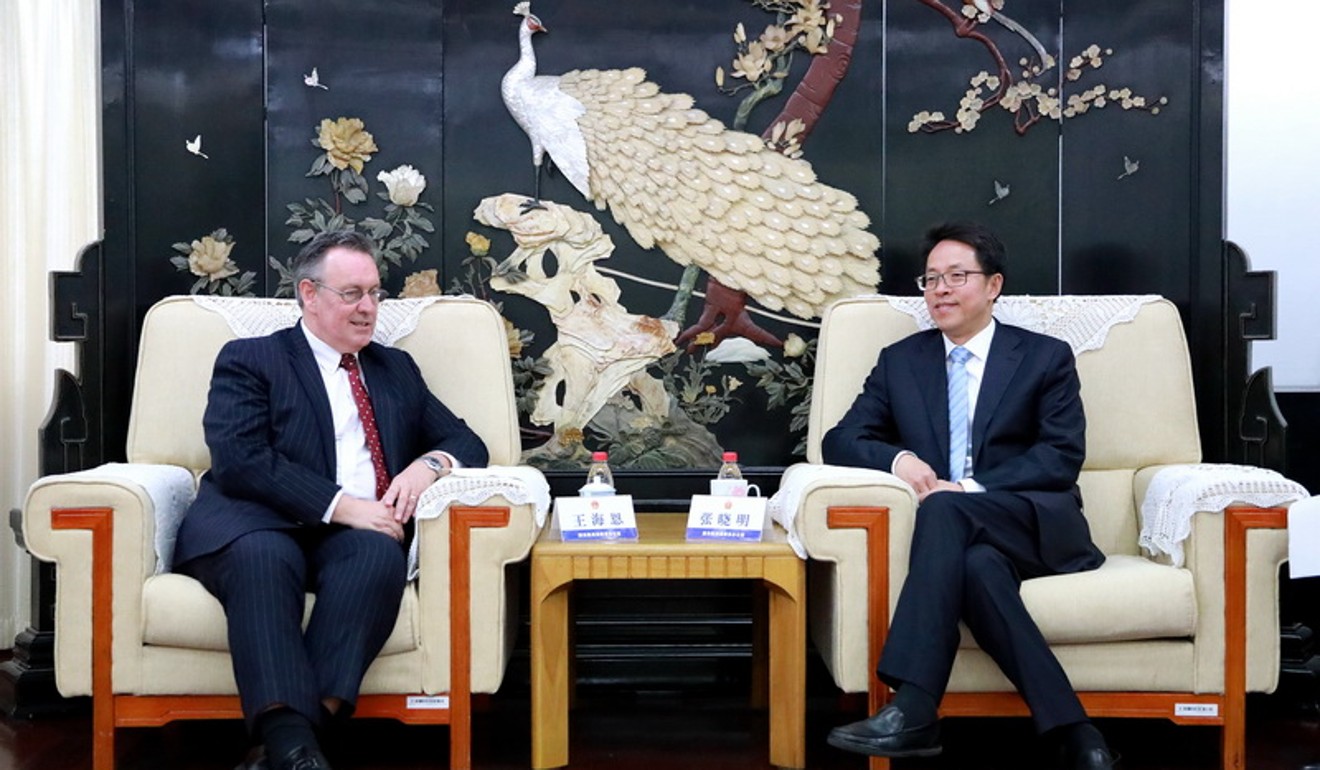
Hong Kong’s controversial extradition bill is extra-fraught in light of the US-China trade war and forcing it through may come at a price for Carrie Lam
- The chief executive is facing her biggest political challenge since taking office two years ago and international pressure is making the stakes even higher

Hongkongers were shocked on Saturday to see the acrimonious debate over the government’s contentious fugitive transfer bill turn into utter chaos in the legislature, with unprecedented physical clashes between lawmakers from the rival pro-establishment and opposition camps.
Yet the scuffles and name-calling were but a minor domestic tiff compared to the much bigger and more far-reaching wrestling on the international stage between the world’s two major economic powers, which continues unabated with no sign of a truce on the horizon.
Saturday’s ridiculous scenes in the Legislative Council chamber resulted in both camps claiming injuries, after lawmakers from the two factions battled each other in a free-for-all to “occupy” the same meeting room for separate discussions on the bill, which, if passed, would allow the transfer of fugitives from Hong Kong to other jurisdictions with which the city has no extradition agreement.
Frenzied as it was, this might have come across as merely the teething problems of new legislation but there could be bigger problems looming. Chief Executive Carrie Lam Cheng Yuet-ngor, at the centre of the whole storm, admitted that the US-China trade war could not be neglected as a significant factor.

How much the government anticipated such complexity and opposition when pushing ahead with the bill is one thing, but its full acknowledgement of the uphill battle ahead is a recognition of reality at last.
As China’s most international metropolis, Hong Kong is closely tied to many foreign interests, with the external parties involved seeing themselves as natural stakeholders in the community.
Like it or not, they will voice their concerns, complaints and dissatisfaction when opposing government initiatives and policies they consider unfavourable to them, as in the case of this extradition saga.
Over the past months, Hong Kong-based diplomats, including Washington’s top envoy Kurt Tong, have warned that international confidence in the city’s rule of law and investment environment would be eroded with the introduction of the new bill. The claim has been roundly rejected by the government.

But a closer look at Beijing’s reactions suggests something more subtle.
“No foreign force can interfere in Hong Kong’s internal affairs,” is usually the official line Beijing takes whenever the city is criticised by an outside government on matters related to the implementation of the “one country, two systems” policy.
However, in international politics, the line can sometimes be blurred before mere “concerns” grow to the point of being characterised as “foreign interference”, which may sour bilateral relationships.
Beijing’s relatively low-key initial response might provide a clue.
When Zhang Xiaoming, the central government’s top man in charge of Hong Kong affairs, met visiting British consul general Andrew Heyn in early April to discuss “a full range of bilateral issues affecting Britain and Hong Kong”, the extradition bill was widely believed to have been touched upon, although neither side confirmed this.

The Chinese Ministry of Foreign Affairs’ office of the commissioner here once used a relatively moderate line in urging other countries to “respect” the city’s rule of law.
The comments became stronger as pressure kept building. The foreign ministry last week reiterated that Hong Kong was a matter of China’s “internal affairs”, and declared that a US congressional committee report claiming the bill would “remove legal protections” for maintaining Hong Kong as a global financial centre was “not worth a rebuttal”.
Lam is perhaps facing her most difficult time since taking on the city’s top job two years ago.
Domestically, she would face a severe governing crisis if she were to back down under mounting pressures at home and abroad, something Beijing does not want to see either.
Externally, the snowballing controversy could lead to a bigger diplomatic row between China and the West, in particular the US.
The government still stands a chance of forcing the passage of the bill, given that pro-establishment lawmakers outnumber their pan-democratic rivals in the legislature.
The bigger question is, at what price?